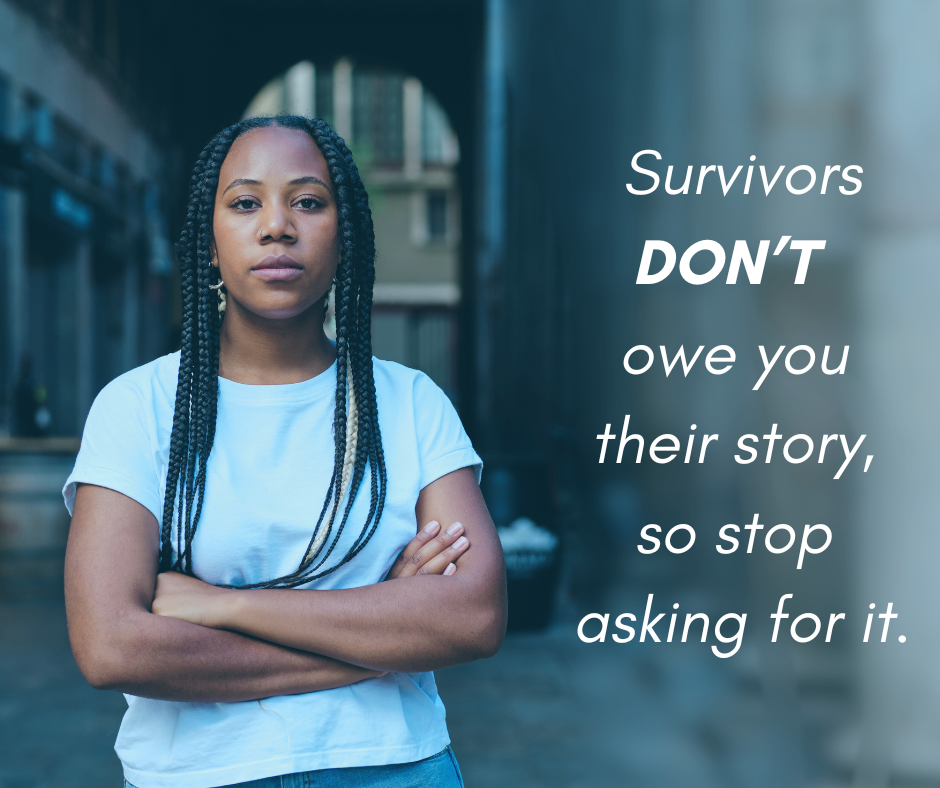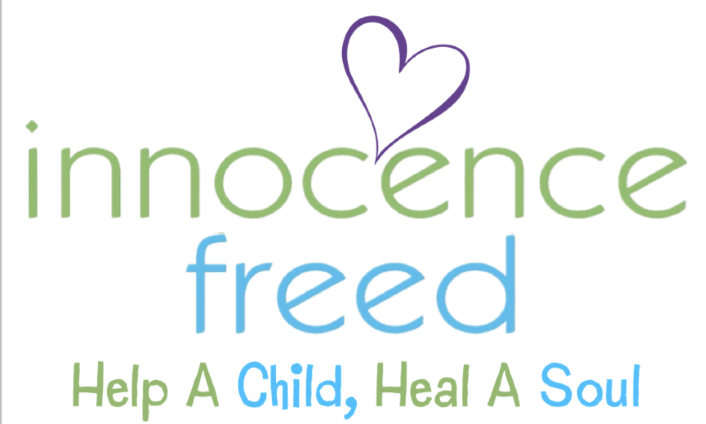
Survivors Do Not Owe You Their Story
The sentiment behind “don’t ask survivors to share their stories with you” emphasizes respecting the boundaries, emotional well-being, and personal agency of individuals who have survived traumatic events. Survivors of abuse, violence, war, or other traumatic experiences may feel overwhelmed or retraumatized when asked to recount their stories. Here’s why it’s essential to approach this topic with sensitivity:
1. Emotional Impact on Survivors
- Recounting traumatic events can reopen wounds and trigger emotional distress.
- Survivors may not be ready or willing to share their stories publicly, and they should never be pressured to do so.
2. Agency and Consent
- Survivors should have full control over how, when, and if they share their experiences. Not asking them to recount their trauma honors their autonomy.
- Asking for a story can sometimes imply that the survivor owes others an explanation, which can be harmful.
3. Power of Silence
- Survivors may prefer to heal in private or speak about their trauma on their own terms.
- Silence doesn’t mean an absence of healing or reflection—it can be a way for individuals to process their experiences without external pressure.
4. Listening Without Asking
- If survivors choose to share, it’s important to listen without prying or forcing details out of them.
- Supportive listening helps create an environment where survivors feel safe to express themselves, rather than feeling obligated to.
5. Alternatives to Directly Asking
- Offering general support, focusing on creating a safe space, or referring survivors to professional help if needed can be more compassionate approaches than asking for their stories.
6. Why Storytelling Can Be Exploitative
- In media and public discourse, survivor stories are sometimes used for shock value or to advance a particular narrative, which can feel exploitative.
- Survivors should not be treated as sources of content or information; their humanity and privacy deserve respect.
It’s crucial to respect survivors’ boundaries and recognize that their healing process is personal. Rather than asking for stories, we should offer our support, listen when they choose to speak and advocate for their right to privacy and dignity.
Written by, Julie Shrader
Innocence Freed

